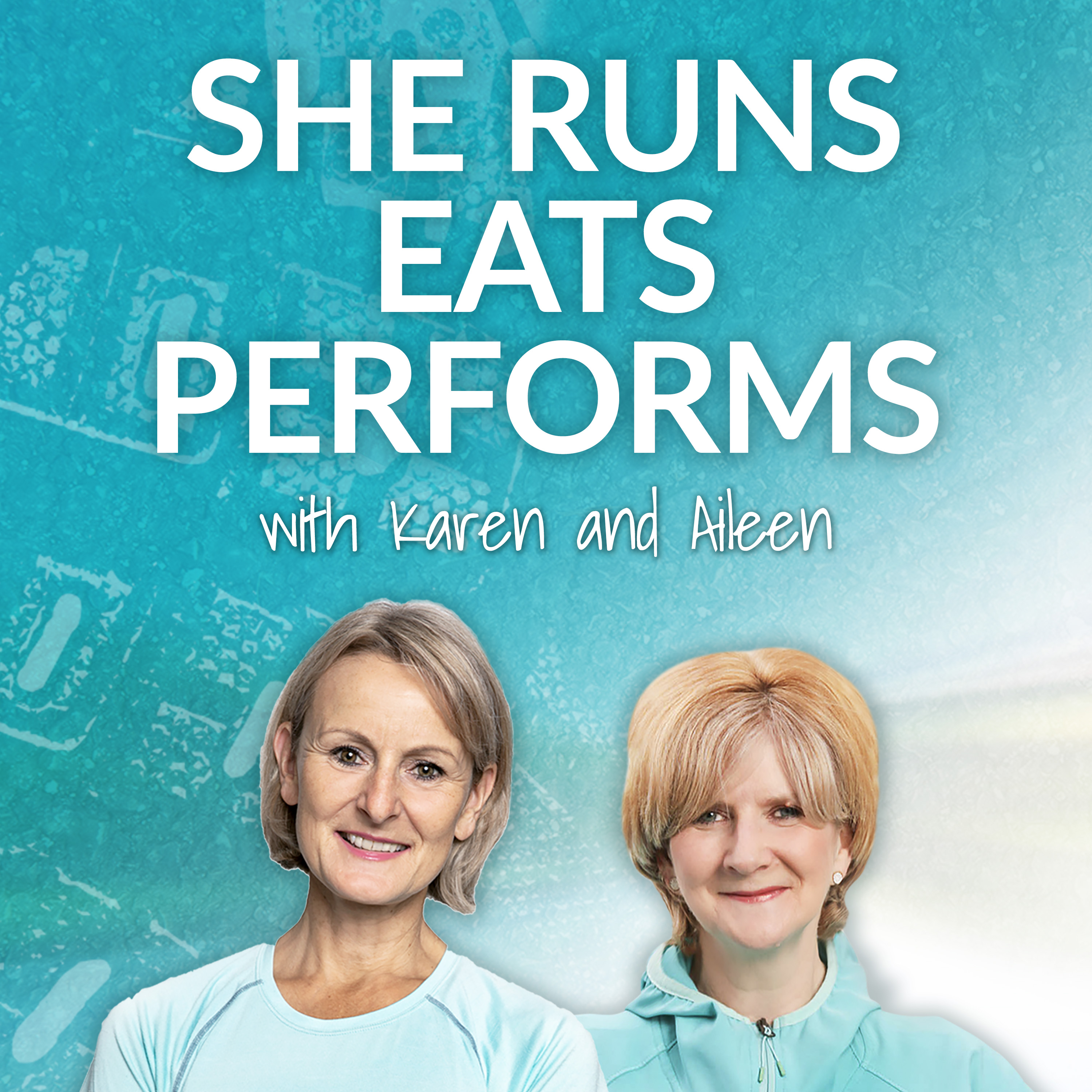Reaching A Performance Plateau
Reaching A Performance Plateau
The Performance Plateau….have you ever reached it? Do you know what it is?
This phenomenon is commonly defined as a plateau in sports performance occurring when the body begins to adjust and adapt to the demands of the exercise being performed, therefore the athlete sees very little or no benefit from their training.
To further our understanding of this subject this episode will:
- Outline what exactly it is and why it may occur
- Focus on food and nutrition as one approach to help overcome the Performance Plateau. Then we will focus on
- Give some food and nutrition ideas, as well as some training ideas to put in place to help you overcome, or prevent you experiencing a Performance Plateau
SHOW NOTES:
(04:01)
Defining the Performance Plateau Effect which, in science, is thought to evolve from the muscle-nerve-axis-associated performance and various cardiorespiratory parameters including VO2 Max but commonly recognised as when the body adjusts to the exercise being completed therefore the athlete no longer sees any performance benefits from their training.
Moving on to explain WHY it is thought to occur and debating whether it should be seen as a positive or developmental stage of training.
(11:39)
Discussing some signs and symptoms that could suggest a performance plateau has been reached including:
- Running performance has stalled
- Body composition is not changing
- Training feels easy
- Overuse and/or repetitive strain injury is an issue
Outlining some potential risk factors for the performance plateau occurring such as:
- Diet and nutrition
- Age
- Gender
- Genetics
- Overtraining
(15:10)
FEMALE FACTORS:
There is a known gender specific difference in the VO2 Max plateau with females having an earlier plateau than men. (Remember, VO2 Max is the maximum or optimum rate at which the heart, lungs, and muscles can effectively use oxygen during exercise).
VO2 Max forms part of the cardiorespiratory system associated with a performance plateau. So, it would appear that women may reach a performance plateau earlier than men as a result of reaching a VO2 Max plateau sooner than men
NOTE: This information also highlights the fact that at some point EVERY athlete would potentially reach a performance plateau that they cannot overcome because it is dictated by maximum physiological capacity.
(18:55)
Delving into aspects of diet and nutrition that may contribute to the development of or help prevent the performance plateau effect occurring with a more detailed Focus on Nutrition Periodisation using the micro, meso, macro cycle concept:
Micro-cycle - This phase focuses on the changes in training and nutrition that occur in approximately one week.
Meso-cycle - This phase is seen as a small collection of micro-cycles that represent similar training or nutritional goals.
Macro-cycle - This phase is based around a much larger training block, encompassing anything from 3 to 6 months depending on the type of event the training is for. Or, this phase could be introduced during ‘out of race’ season.
(29:20)
Looking at specific nutrients and how they may help prevent a runner reaching a performance plateau. Carbohydrate– known to be a limiting factor in sports performance, therefore could influence the development of the performance plateau effect if inadequate amounts consumed
Protein – Running, especially endurance running is known to lead to catabolic effects on muscle therefore adequate protein is required to maintain muscle mass, thus reduce the risk of the performance plateau developing
(44:37)
Considering how to put some of these food and nutrition ideas into place to help reduce the risk of a performance plateau occurring including:
- Reflect on your answers to the following questions: WHAT are you eating
- HOW much are you eating?
- Is it serving your training and performance goals?
- Ensure your diet is varied, try to avoid REPETITIVE eating
- Aim to increase protein intake on days when completing intense or skill-based training
- Remember to increase food portion sizes as your training increases
- Think about periodizing your nutrition around your training schedule and race calendar
- Maintain the FOOD-FIRST approach to macronutrients (carbohydrate and protein) wherever possible
(52:43)
Giving a few ideas for training that may help you avoid the performance plateau effect:
- Gradually but regularly increase training volume
- Include variety of training. For example; steady state, hill drills, tempo running
- Introduce resistance/strength training cycles of approximately three to four weeks
(56:25)
ACTION POINT to consider putting in place:
Reflect on what you eat:
It is repetitive?
Is it enough?
Are your food choices correct for the type of training you are doing?
Once you have reflected on these questions, consider what changes you need to make to support ongoing running performance.
(57:34)
KEY TAKEAWAYS
1) A performance plateau is thought to occur when the body begins to adjust to the demands of the exercise performed therefore the individual does not see much, if any, benefit from it
2) Remember a performance plateau should not necessarily be seen as a negative state. It is actually a sign that you have made some progress. BUT it suggests that you are now ready to take the next step and increase training to help increase performance.
3)There are several signs and symptoms that may suggest you have reached a performance plateau including:
- Running performance has stalled
- Training feels easy
- You are no longer achieving body composition goals e.g increased muscle mass and reduced fat mass
4) Remember that WHAT you eat, HOW much you eat and WHEN you eat it (linked to the training you are completing) may help prevent OR be a risk factor in you reaching a performance plateau
5) In order to help prevent a performance plateau, training and nutrition need to be addressed in tandem. Focussing on one only may have limited effects
6)Remember the FOOD FIRST approach to your nutrition. Wherever possible choose whole foods rather than depending on commercial bars, gels and isolated nutrient supplements
7) If you require a whole food-based protein powder to support your performance then try Purition. This is the brand we recommend in this episode and you can find more information on our website: www.runnershealthhub.com
RELATED TOPICS
Nutrition Periodisation for Runners
Time Restricted Eating and Running Performance
Nutrient Timing For Performance
Disclaimer:
The suggestions we make during this episode are for guidance and
advice only, and are not a substitute for medical advice or treatment.
If you have any concerns regarding your health, please contact
your healthcare professional for advice as soon as possible.
Aileen Smith and Karen Campbell host RUNNERS HEALTH HUB. A place for like-minded female runners who are looking for simple ways to support running performance, energy, endurance, and general great health.
if this is your first time your show and you’d like to know more about us and She Runs Eats Performs please check out our TRAILER.
If you're ready to make learn more about how you may introduce easy nutrition into your running and training plan join our Easy Nutrition For Healthy Runners Online Programme for short videos, recipes, downloads and LIVE training and Q&A.
As a THANK YOU to you as one of our valued listeners, we have a special offer for you use COUPON CODE POD to get 33% discount off the full price which brings the price to £199.
If you’d like help from Karen and Aileen to design a personalised sports nutrition plan for your running - please contact us at hello@runnershealthhub.com
Happy Running!
Aileen and Karen

